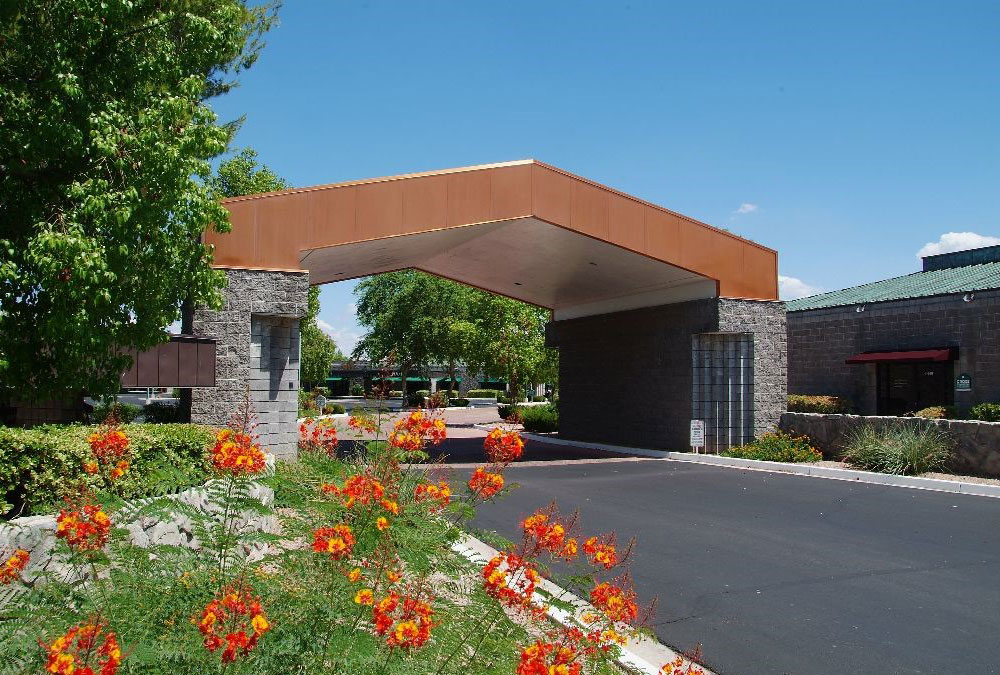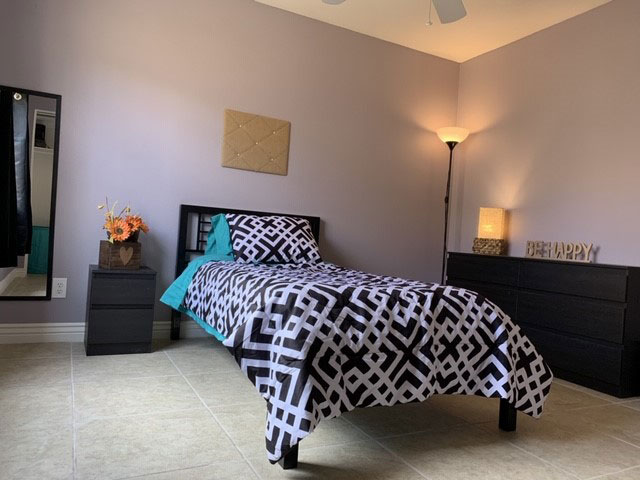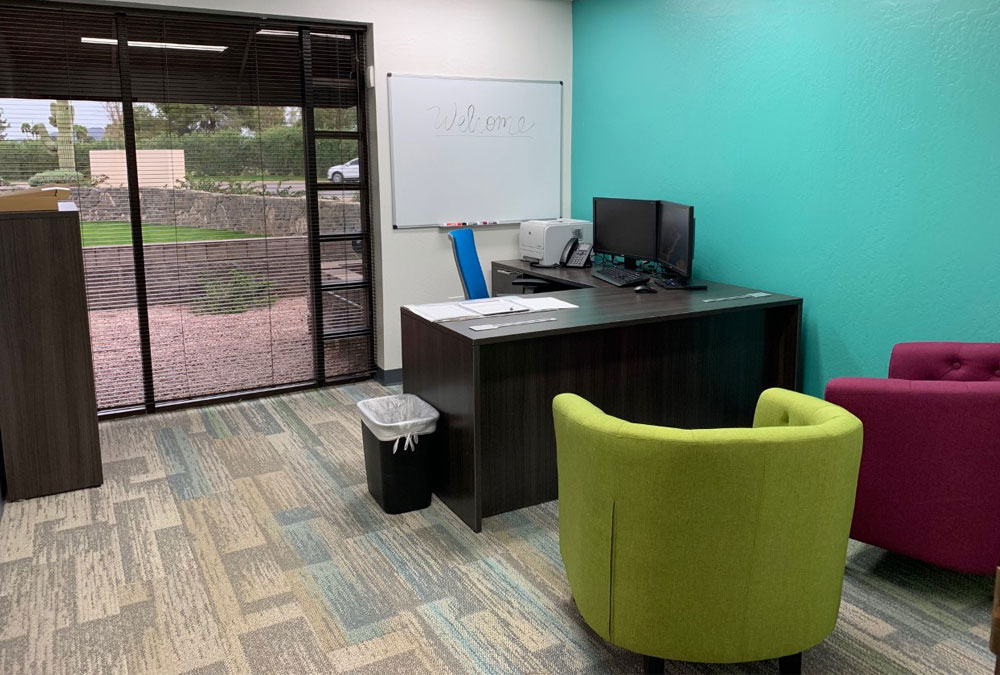Taking the first step in seeking help for substance use disorder (SUD) can be daunting for many, but it’s a crucial step to begin the path toward recovery. Rehab centers are an especially helpful resource to begin recovery, as they feature programming designed to help treat those struggling with SUD. With rehab, individuals can learn how to manage their issues in ways that don’t rely on a harmful substance.
Of course, there isn’t a single blueprint for what rehab should look like. In fact, rehab centers, treatment centers, recovery clinics, and other rehabilitation facilities can differ in many ways, including the size of the facility. While the size of a rehab center doesn’t guarantee it will work for you, many people prefer a more intimate, personalized rehab center as they begin recovery.
We understand how important it is to meet you where you’re at as you pursue recovery. The recovery journey can be difficult, and many challenges can arise without warning. However, our team is committed to providing you with all the skills needed to navigate life without turning to substances. Since we are a small rehab center, we take on fewer clients at a time in order to provide more hands-on time with each client. Learn more about how a smaller rehab center can be beneficial to your recovery.
How Substance Use Disorder and Alcohol Rehab Works
Regardless of the rehab center you choose, the goal should be the same: to help you recover. While it’s common for people to be unsure about rehab and the process of recovery, rehab may be what you need to begin. Here, it’s important to note that rehab is a journey, not a destination.
Generally, your journey in rehab will begin with a detox process. This is to clear out any harmful substances from your body and provide medication and medical supervision while you experience cravings and withdrawals. Some rehab centers offer living spaces to their clients, and the center allows clients to eat, sleep, exercise, and do other activities just like they would do at home in their everyday life.
After detox, clients consult with an intake team to develop a therapy or treatment program plan. In therapy, clients discuss their history with SUD as well as past trauma, mental health conditions, and current issues. The aim is for the client and counseling team to find healthy coping mechanisms to manage their issues and reduce the rate of relapse. Therapy can be done in a group, individually, or both, depending on the client’s needs.
Programs such as partial hospitalization programs (PHPs) or intensive outpatient programs (IOPs) may be offered for clients who need daily, ongoing treatment away from an inpatient setting. IOPs, in particular, are quite flexible, allowing you to continue going to work or school while also going through rehab. Rehab programs can last anywhere from several days to months, depending on your needs and how long each step of your recovery takes. However, keep in mind that the goal isn’t to complete rehab in a certain amount of time but to take the time needed to successfully establish your future.
The Benefits of a Small Rehab Center

Recognizing you’re ready to start your recovery journey is the first step toward recovery. However, many individuals are unsure of what comes next and where to find the best fit for them. If you’re looking into beginning rehab for your SUD, a small rehab center may be your best option.
Here are some benefits to consider:
Affordability
Simply put, small centers are often more affordable forms of rehab to attend than the large corporate center. Because there are fewer people at a small center, there is typically a streamlined staff, meaning less money is spent on things like working expenses and salaries. Because of the smaller size, the facility itself is often cheaper to maintain and has a lower utility demand, which means reduced overhead. If you’re concerned about your finances but still wish to attend rehab, a small rehab center can provide what you need while working within your budget.
Flexible Programs
Because of the smaller number of clients, small rehab centers tend to offer more flexible programs. If you have certain needs that need to be met, a small center can work with you to provide a program that is flexible and aligns with your schedule. Larger programs with more clients aren’t as flexible, as they must maintain a strict daily schedule to ensure everyone receives adequate care.
Personal Connections/Support
This is arguably one of the most critical reasons people choose to attend a small rehab center. In many small centers, staff outnumbers the clients. Clients receive much more attention at these centers compared to larger organizations. A better staff-to-client ratio allows for more individualized sessions, whether your needs are one-on-one counseling, unique therapies, or something else. By having frequent access to staff, including psychiatrists, clinicians, and case managers, you can engage in regular dialogue about your recovery. This enables you to bring up any questions, concerns, or even praises that will then be heard and attended to by the necessary staff members.
At small rehab centers, clients’ needs are prioritized above all else, as the goal is to recover from SUD. If an issue arises and you feel your current program is not meeting your needs, you can more easily take your requests to staff, and a new plan can be created for you.
Smaller Group Sizes

Just as you will receive more personalized attention from the staff at a smaller center, you can also expect peer groups to be smaller in size. This enables you to feel more comfortable during group therapy sessions and build closer relationships with other clients who have experienced similar struggles. Working with a small group not only provides a better opportunity to establish common ground with your group, but it also becomes easier to make stronger, deeper connections with your peers.
We accept a maximum of 20 clients at a time. This is to ensure no one’s needs go unmet. Whether you need more frequent interactions with staff or easier interactions with peers, a smaller rehab center could be a good fit for you.
Location
The location of the center itself can also be a factor for some clients. Large rehab facilities often need massive grounds to house the facilities, meaning they are typically removed from population centers. By contrast, smaller centers tend to be located close to towns and cities and are sometimes even located in the heart of business districts with easy access to other facilities—perfect for those attending treatment during the day and returning home at night.
Disadvantages of Small Rehab Centers
As with anything that has an upside, there may be some disadvantages that come along with it. Smaller centers may be a fantastic option for some individuals but may not be for others. Here are a few potential disadvantages to take note of regarding small centers.
Less Privacy
While there are great benefits to forming close bonds with staff and peers, you may have less downtime or alone time at a small center. If you know you need some privacy, don’t worry—it’s still achievable at small centers if you’re willing to advocate for yourself. If privacy is a concern for you, be sure to bring this up with the staff as soon as possible.
Potential for Less Diverse Treatment Options
Larger centers often have the advantage of funding appropriated for a large variety of treatment programs, whereas small centers are more focused. If you struggle with SUD and its contributing factors, we can provide you with the treatment and skills you need to navigate the rest of your life. However, if you have rare or specialized issues that need to be addressed, a larger center may have the ability to handle them all.
More Intimate Setting
As mentioned, there are fewer people at a small center. In addition, larger centers hire more staff with various specialties for their treatment programs. Due to these factors, there are more people to interact with. If you prefer the anonymity of a larger group or prefer interacting with a lot of people, a smaller rehab may not be a good fit.
Is a Small Rehab Center Right for Me?

Think About What You Need
Before selecting a rehab facility, it’s a good idea to create a list of what you need out of a rehab center as well as what you expect from the experience and the facility. Here are a few ideas to consider to get you started:
- How much do you want to spend on rehab?
- Do you want to travel?
- Do you value close relationships with a few people or several relationships at once?
- Do you have a mental health issue you need to treat, as well?
- Do you prefer a strict schedule or something with more flexibility?
- How much time can you commit to remaining in a program?
- What are you hoping to achieve through rehab? Does this center offer the means to do so?
Take Your Time
Deciding what you want out of rehab, as well as where you want to go, can be challenging. You may feel rushed or pressured to make a decision to get your recovery started as soon as possible—and your recovery is certainly a priority. However, just like the initial decision to go in the first place, choosing a rehab should be a decision made by you. Because of this, it’s a good idea to take your time and truly decide if a center you’re considering is a good fit for you.
Ask for Advice
You don’t have to go through the selection process on your own. Consider approaching your physician, therapist, or counselor with any questions you have. These professionals can work with you to determine if there are any physical or mental health needs that should be addressed and can also help you talk out your answers to the questions listed above. Likewise, you could consider talking to your loved ones, especially those who previously found recovery.
Ultimately, if you’re unsure whether what a rehab center offers is right for you, call their helpline and ask. While rehab centers would love to work with you, their ultimate goal is to help you find recovery at a place that fits your needs. For example, the mission is to provide treatment, therapies, skills, and aftercare designed to help you stay on the path toward recovery. We’re not here to sell you our business; if we’re not a good fit for you, we’ll do everything we can to help you determine the best recovery model for you.
Small Rehab

We’re proud of anyone who has decided to take the first step in finding recovery from SUD. We know how difficult the recovery process is, but we’re committed to providing the resources necessary to navigate it successfully.
Recovery programs offer a variety of treatment therapies and levels of care, including:
- Detox
- Inpatient or Residential Treatment
- Intensive Outpatient Program (IOP)
- Partial Hospitalization Program (PHP)
- Individual Therapy
- Group Therapy
- Medication-Assisted Treatment (MAT)
- Trauma and PTSD
- Dual Diagnosis
- Relapse Prevention




